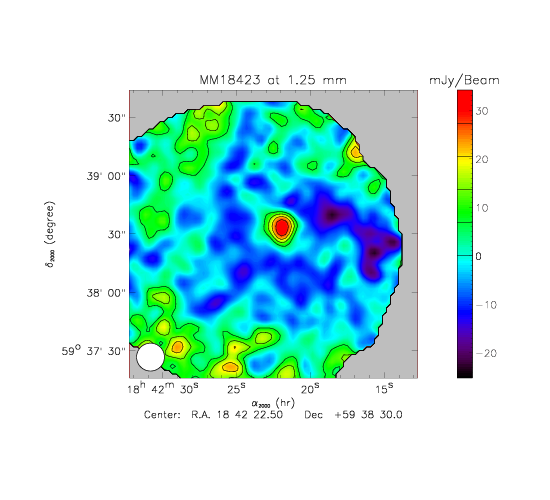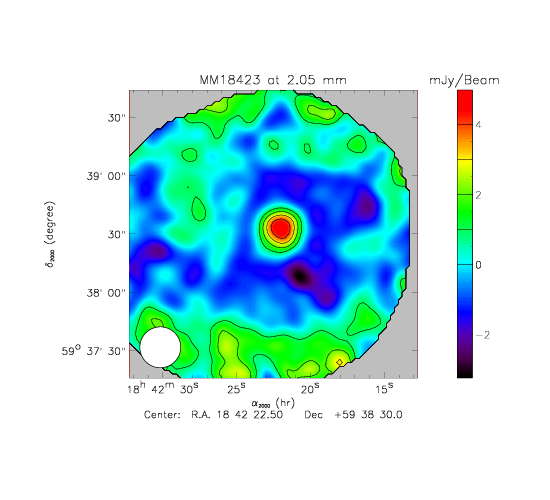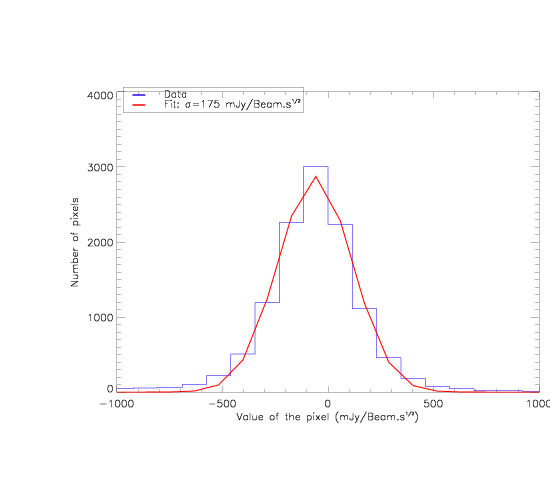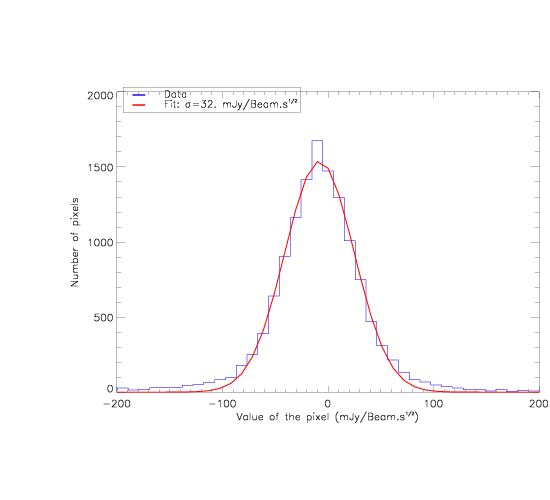|
Size: 1297
Comment:
|
Size: 1299
Comment:
|
| Deletions are marked like this. | Additions are marked like this. |
| Line 16: | Line 16: |
| .We detect the source at both wavelenghts, shown on the maps given below. The RMS noise at the center of the map is 4 mJy/Beam at 1.25mm and 0.5 mJy/Beam at 2.05mm. | .We detect the source at both wavelenghts, shown on the maps given below. The RMS noise at the center of the map is 5.5 mJy/Beam at 1.25mm and 0.7 mJy/Beam at 2.05mm. |
Brief analysis of the faint source MM18423 (z=3.93)
Coordinates:
- R.A. = 18h42m22.5s
- Dec. = +59d38'30"
Expected fluxes (Combes et al. 2012):
- S1.2mm=30mJy+-2mJy
NIKA obsevations:
Day: 16/06/2013
Scans: 8 Lissajous of 5 min (<=> 40 min) each with followed by tracks (for tuning)
Size of the map:90"x90"
Opacity at 225 GHz: 0.56
Elevation of the source: 67 deg
- We detect the source at both wavelenghts, shown on the maps given below. The RMS noise at the center of the map is 5.5 mJy/Beam at 1.25mm and 0.7 mJy/Beam at 2.05mm.
Noise estimates:
- By multiplying the Jack-Knife maps with the square root of the time per pixel maps and computing the histogram of the obtained map, we are able to estimate the noise level in the data. Note that this is in the case of high opacity (we can expect the noise to be reduced by a factor of about exp(-tau/sin(elevation)) ~ 1.5-2, and even more since the resonances are larger under large optical load).




